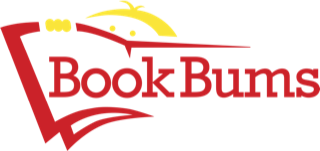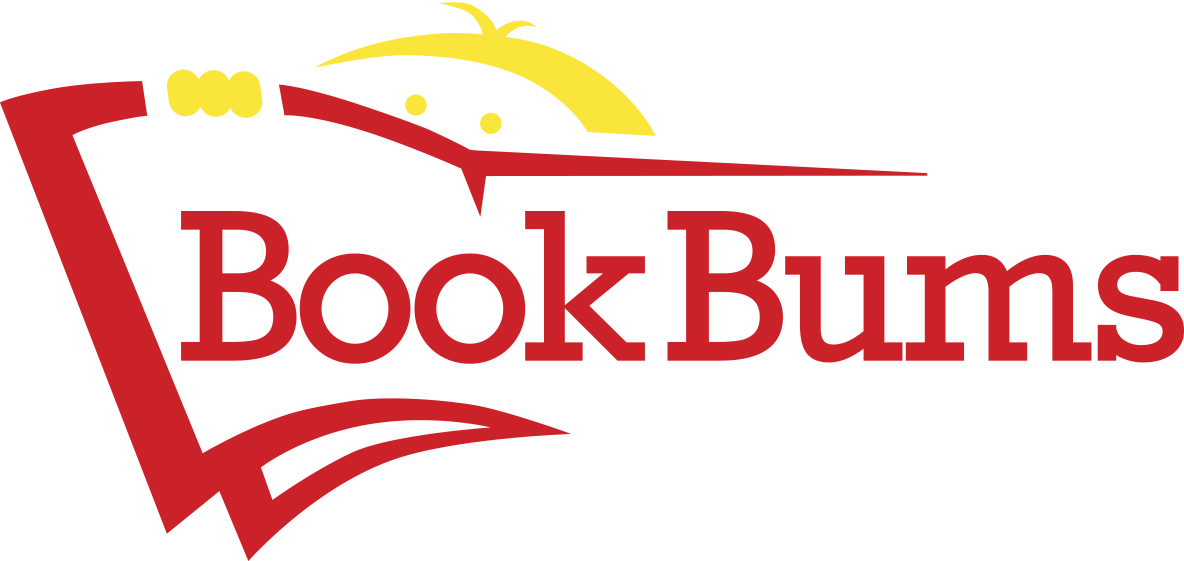
Hello Book Bums families!
Do you have a great storyteller in your family? Is there someone who always has a tale of family history to share at holiday gatherings? Today we are thinking about those storytellers and the tales that are passed down in families and cultures. From "Once upon a time" to "happily ever after," we wish you happy reading!
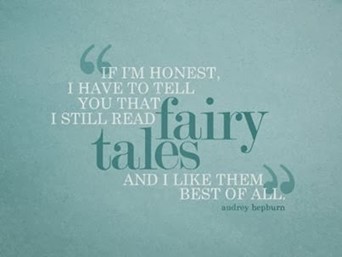
Word of the Week
dilemma (di-lem-uh) noun/person, place, or thing - a situation in which a difficult choice has to be made, a problem
In Beauty and the Beast, Belle faces a dilemma and must choose between freeing her father or sacrificing her freedom..
Literary Calendar
• February 26 is Tell a Fairy Tale Day!
• Fairy tales often present a dilemma for the main character to work through. Some of them may be about whom to trust, truth vs lies, or inner vs outer beauty.
• You can find fairy tales in the non-fiction section of the library. The Dewey Decimal system assigns 398 to foltakes and 398.2 to fairy tales specifically.
"If you want your children to be intelligent, read them fairy tales. If you want them to be more intelligent, read them more fairy tales."
-Albert Einstein
From our Bookshelves
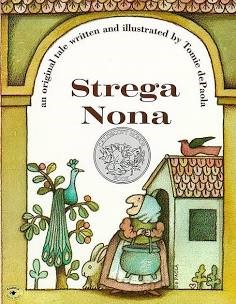
Strega Nona, a folktale by Tomie dePaola, is the story of an old woman who had special powers. Strega Nona was getting older, so she hired a young man to help around her home. Her hired hand, Anthony, proved to be an often-careless young man who longed to impress the townsfolk. Well, everything got a little crazy when Strega Nona left town, and Anthony (though he was forbidden to do so) tried using Strega Nona’s magic pasta pot— for he knew it would impress those who would not give him his due respect. Pasta, as Anthony knew it would, flowed from the pot and folks with forks arrived and ate to their hearts’ content. Trouble began, however, when Anthony realized he did not know how to stop the pasta from flowing from the pot. It wasn’t long until the town was being flooded with pasta. Finally, Strega Nona returned home. She stopped the flow of pasta from the pot, and Anthony suffered a fitting consequence for being disobedient.
This entertaining, cautionary tale was voted one of the “Top 100 Picture Books” by School Library Journal, however, it’s not actually an “old tale” as is stated on the first cover. Strega Nona is an original story by dePaloa himself, as stated on the second book cover. So, though it’s still marketed as a folktale, it’s not actually folklore.
What is folklore, anyway?
Folk means people. Lore is information shared by word of mouth. Folklore is information shared by people by word of mouth.
Folklore may include:
food traditions
beliefs and religion
verbal art
music
material culture/art & architecture
narrative/stories
Narrative Folklore, a genre with which kids are expected to familiar, includes:
• legends - unauthenticated folktales (The Legend of Sleepy Hollow)
• fairy tales - stories about magical beings and/or lands (Cinderella)
• myths - folktales explaining some natural or social phenomenon (Persephone’s abduction by Hades/seasons)
• tall tales - an exaggerated tale about a person who is larger than life (Paul Bunyan)
• fables - short stories, often with animals, conveying a moral (The Three Little Pigs)
Matching Challenge:
Legend The Boy Who Cried Wolf
fairy tale Icarus (fly too close to the sun)
myth Johnny Appleseed
tall tale Jack & the Beanstalk
fable John Henry
Make it a point to acknowledge this genre of books. Many children adore folktales, and they’ll fare better in the classroom due to their broad knowledge of story types.
Tips for Readers and Writers
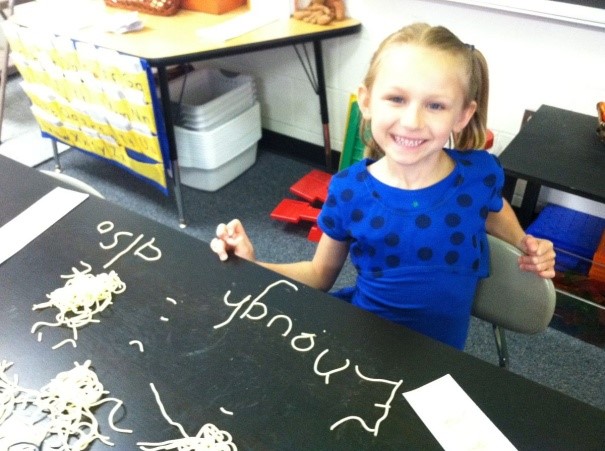
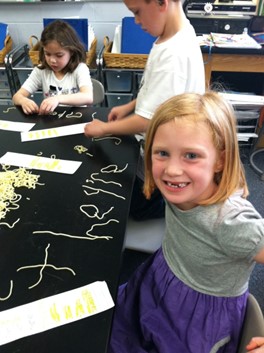
After reading Strega Nona, you might just want to make spaghetti for dinner. If you do, toss some extra pasta in the pot. Your kids can have some fun spelling words with spaghetti noodles! If you don’t have any assigned spelling words, simply choose some words from Strega Nona. Pro Tip: As your kids are spelling the words, have them make the sounds, even if the sounds don’t match the letters as they’d expect. Example: When writing tough, the kids should say, “/t/ (when they write the t)—/u/ (when they write the o-u)—and /f/ (when they write the gh).” Do not have your kids name the letters when they’re spelling words.
Tips for Families
From 1988 until 2008 West Chester was blessed to have a recreation and activities coordinator named Miss Mary.
Miss Mary joyfully visited nursing homes and classrooms with wildlife in tow. She hosted events at Keehner Park that included bat house building and nighttime stargazing strolls. In all she did, she promoted a love for nature and all things wildlife. Miss Mary also led the effort to save the 1833 log cabin that now stands guard at Keehner Park.

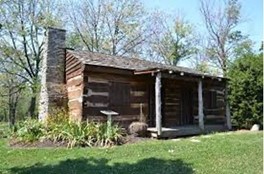
For more information, visit
https://www.westchesteroh.org
Our family remembers Miss Mary, mostly because of a folktale she shared with us at Liberty Elementary School—before early childhood schools were a thing. Miss Mary told the story of a Native American who had traveled a great distance. It was a hot, dry summer, and the traveler was tired and thirsty. As he plodded on and on, he searched for water to quench his desperate thirst. He thought he heard babbling water in the distance, but he didn’t make it. He died just before reaching the water’s edge. Because he didn’t want anyone else to suffer his fate, his spirit entered the ground to become a striking, white-barked sycamore tree that stretched toward the sky to show future travelers where they might find water. If you’re ever in need of water, look for the beautiful sycamore trees.
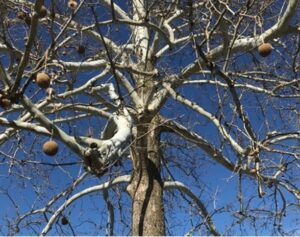
Before those long-awaited bits of green burst forth from their buds, consider noticing with your children how those gorgeous white trees are often found near water.
After hearing this folktale—a myth (and after losing lots of trees in our front yard—too much waterflow in the spring), we found the perfect tree to plant between our house and pond. It’s a sycamore tree. It began as a wimpy stick with one enormous leaf that nearly toppled it over. Today, our tree (now about 35’ tall) reminds us of Miss Mary, that Native American traveler, and the mysterious beauty always waiting to be discovered in the world around us.
The sycamore is a fast-growing tree that offers delightful shade on hot summer days. Its bark is breathtaking, and its little seed balls are gorgeous in winter pine arrangements. There is one drawback, however. Sycamores are a bit messy. On windy days, there can be lots of sticks to gather. (I try to think of it as a workout with plentiful kindling tossed in for free.)
You can pass along the tale of the Native American traveler to your kids. You might begin with, “Hey, kids. See those trees over there with the white bark? Those are sycamore trees, and they say that the sycamore tree points the way toward water. I know a story about that. Want to hear it?”
Pause for Poetry
Trees
By Joyce Kilmer
I think that I shall never see
A poem lovely as a tree.
A tree whose hungry mouth is prest
Against the earth’s sweet flowing breast;
A tree that looks at God all day,
And lifts her leafy arms to pray;
A tree that may in Summer wear
A nest of robins in her hair;
Upon whose bosom snow has lain;
Who intimately lives with rain.
Poems are made by fools like me,
But only God can make a tree.
Practical Grammar
When to Use into and When to Use in to
Use into to describe where something is or to denote a kind of transformation.
We’d say, “I slipped the card into the envelope.”
We’d say, “The Native American’s spirit transformed into a tree.”
Use in to when in is part of a phrasal verb (action word) that is followed by to.
We would never say, “The car turned into the driveway.” We’d say, “The car turned in to the driveway.”
We would never say, “I dropped into say hello.” We’d say, “I dropped in to say hello.”
We would never say, “I logged into the website.” We’d say, “I logged in to the website.”
If you know someone who would benefit from our newsletter or tutoring at Book Bums, please share this email with them! Thank you.
Copyright © 2024 Book Bums, All rights reserved
Our mailing address is:
7967 Cincinnati-Dayton Road Suite L
West Chester, OH 45069
